A post is being widely shared on social media claiming that India got its name from the British after Independence and that the full form of India is ‘Independent Nation Declared In August’. Let us fact-check the claim made in the post.
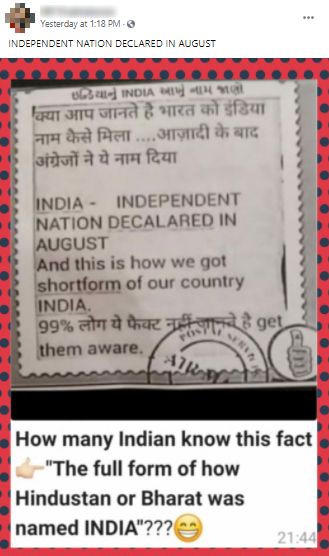
Claim: India got its name from the British, after Independence and its full form is ‘Independent Nation Declared In August’.
Fact: The word India comes from the Indus, called Sindhu in Sanskrit; the Iranians and the Greeks who came through the northwest about 2500 years ago and were familiar with the Indus, called it the Hindos or the Indos, and the land to the east of the river was called India. The term ‘India’ was used by the British since the 18th century and not after Independence. In fact, various legislations made by the British Parliament in the 19th and 20th centuries, prior to Independence, have used the term ‘India’. Hence the claim made in the post is FALSE.
The word India comes from the Indus, called Sindhu in Sanskrit; the Iranians and the Greeks who came through the northwest about 2500 years ago and were familiar with the Indus, called it the Hindos or the Indos, and the land to the east of the river was called India. Therefore, the name India does not come as a short form of ‘Independent Nation Declared In August’.
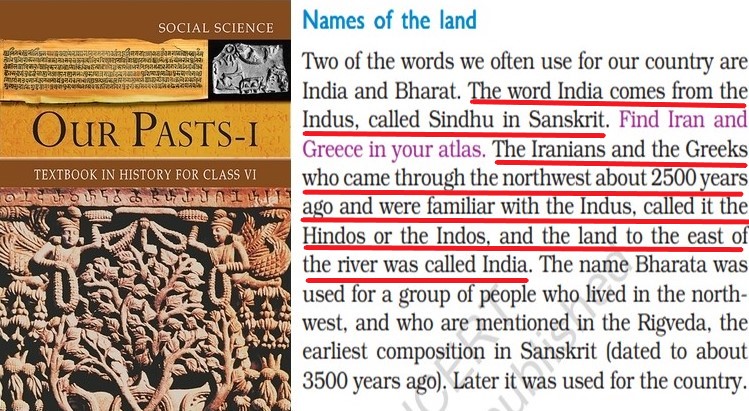
The Greeks who had acquired the knowledge of ‘Hind’ from the Persians about 2500 years ago, transliterated it as ‘Indus’, and by the time the Macedonian ruler Alexander invaded India in the third century BCE, ‘India’ had come to be identified with the region beyond the Indus. Therefore, the name ‘India’ was not given by the British after Independence.
Historian Ian J. Barrow in his article, ‘From Hindustan to India: Naming change in changing names’, writes that, from the late 18th century onwards, British maps increasingly began using the term ‘India’, and ‘Hindustan’ which was mainly used from 16th century started to lose its association with all of South Asia. “Part of the appeal of the term India may have been its Graeco-Roman associations, its long history of use in Europe, and its adoption by scientific and bureaucratic organisations such as the Survey of India,” according to Barrow. So, the term ‘India’ was used by the British since the 18th century and not after Independence. In fact, various legislations made by the British Parliament in the 19th and 20th centuries, prior to Independence, have used the term ‘India’, one such example can be seen here.
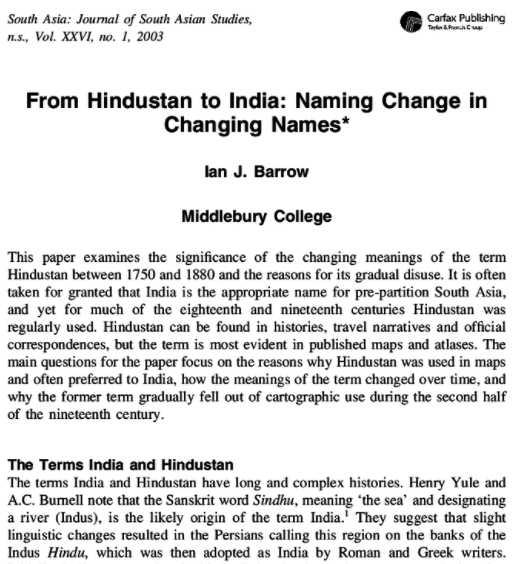
According to the Indian Express article titled, “From Meluha to Hindustan, the many names of India and Bharat”, several nomenclatures have been applied across different points in time, and from multiple socio-political points of view, to describe the geographical entity or parts of it that we now know as India.
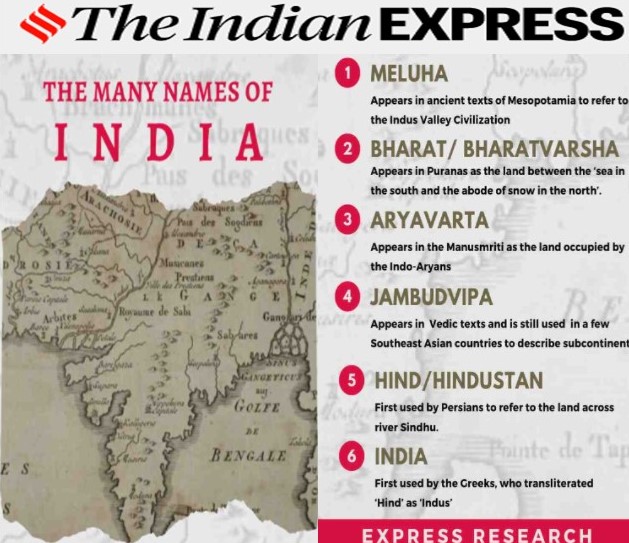
When the Constitution of the country was being prepared, a heated argument had ensued with regard to the naming of the country in a way that would be most suitable to the sentiments of its multicultural, vivacious population; Hari Vishnu Kamath, Seth Govind Das, Hargovind Pant made their arguments in the Constituent Assembly when the section, ‘name and territory of the union’ was taken up for discussion on 17 September 1949, but none of the suggestions were accepted by the committee, according to this article. Therefore, the first article of the Indian Constitution reads, ‘India, that is Bharat, shall be a Union of States.’
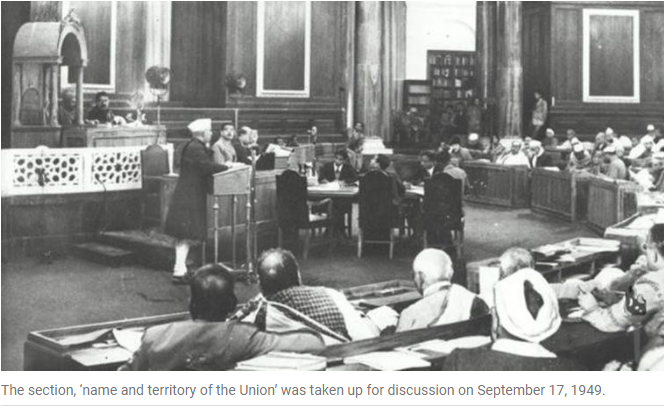
Recently, the Supreme Court refused to entertain a petition that sought changing the name of India to Bharat and asked the Centre to treat the writ petition as a representation and decide on it. The apex court bench headed by Chief Justice SA Bobde observed that Article 1 of the Constitution already refers to India as Bharat. News articles about this can be read here and here.
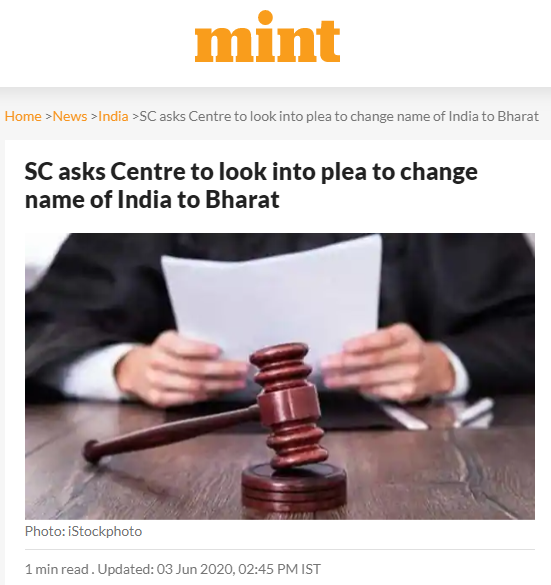
To sum it up, neither did India get its name from the British, nor is it an acronym.


